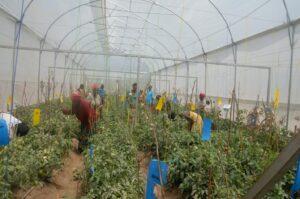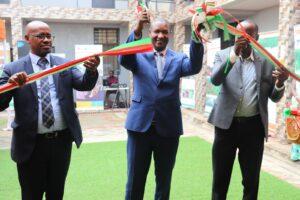Pour mener à bien les activités de plaidoyers de la plateforme ivoirienne pour le cacao durable, une stratégie de plaidoyer a été élaborée. D’elle émane la question de l’amélioration du cadre juridique (OHADA) des sociétés coopératives. C’est en cela que Inades-Formation Côte d’Ivoire a organisé un atelier de réflexion et d’analyse de l’acte uniforme OHADA relatifs aux coopératives.
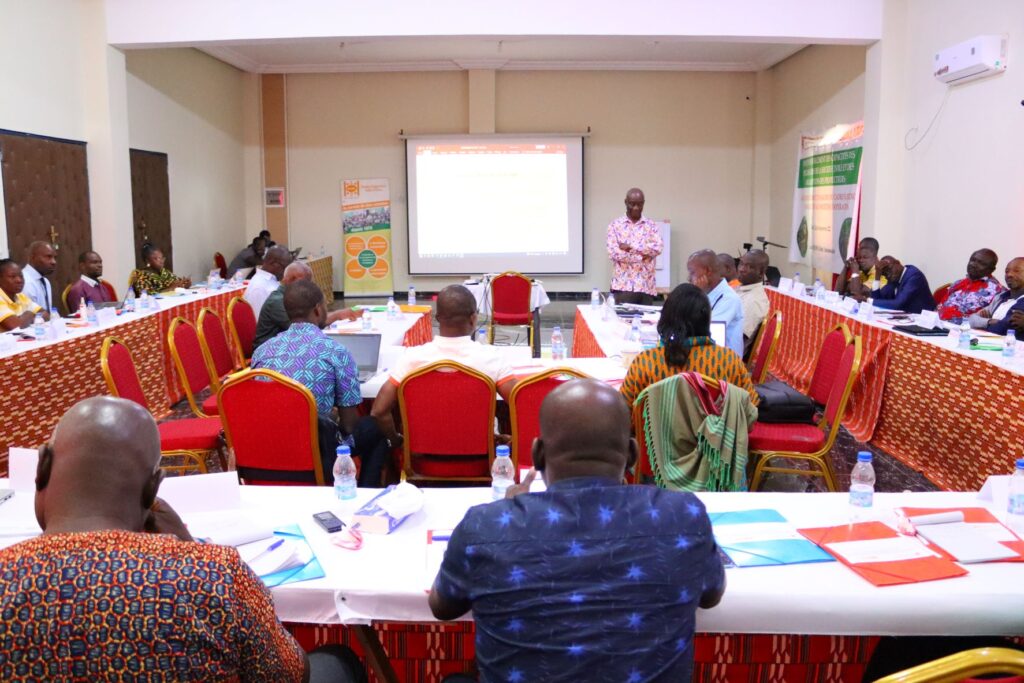
Les 12, 13 et 14 septembre 2022, Inades-Formation Côte d’Ivoire a organisé, avec son partenaire INKOTA NETZWERK, un atelier de réflexion et d’analyse du cadre juridique (OHADA) des sociétés coopératives à Yamoussoukro. Neuf (9) organisations de la société civile et 35 organisations de producteurs de cacao y étaient. L’objectif de cet atelier était d’analyser le cadre juridique (OHADA) des sociétés coopératives et de faire des propositions en vue d’améliorer ses insuffisances. Concrètement, il a été question de ressortir les forces, les faiblesses, les opportunités et les menaces de ce cadre juridique mais aussi de formuler des recommandations concrètes afin de l’améliorer.
![]()
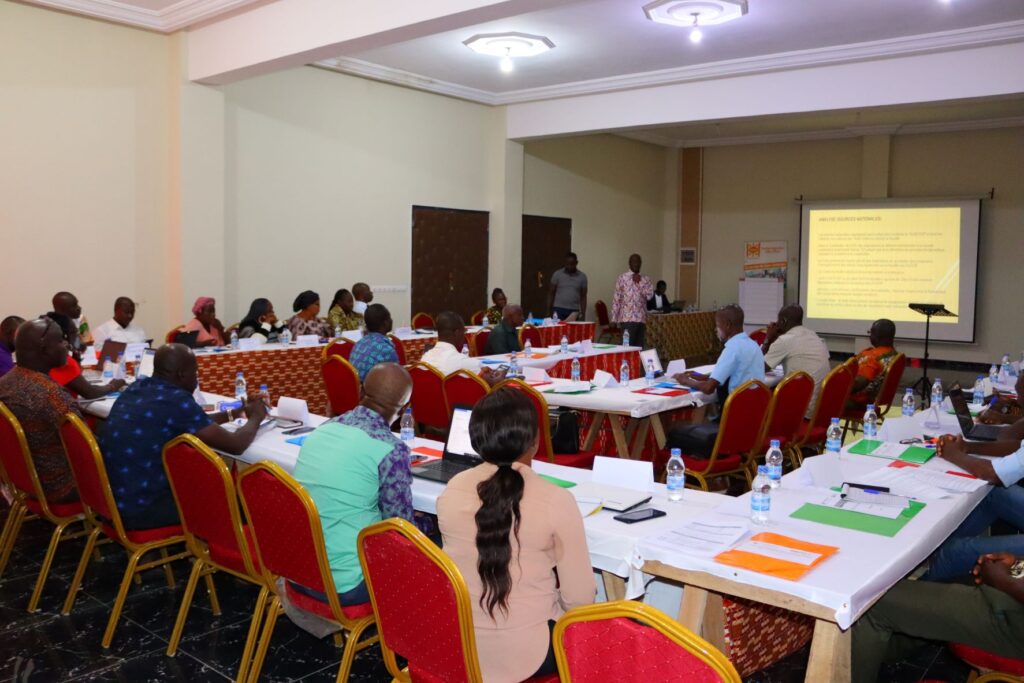
Après les mots introductifs de la Directrice d’Inades-Formation Côte d’Ivoire et une présentation de l’acte uniforme OHADA des sociétés coopératives par l’expert juriste, des échanges et travaux de groupes ont permis aux participants de ressortir plusieurs problèmes et insuffisances de l’acte uniforme. Ces insuffisances portent entre autres sur la méconnaissance ou l’absence d’information et de sensibilisation sur l’acte uniforme, un processus de création des sociétés coopératives très souvent flou d’où l’absence de véritables coopératives ; une absence de clarté ou d’adaptation (avec le contexte national) de l’acte uniforme ; les aprioris de l’administration fiscale vis-à-vis des sociétés coopératives qui parfois ont un statut civil sur papier et un statut commercial dans les faits. Il y a aussi la question du revolving (avance de l’exportateur à la Coopérative pour achat de cacao).
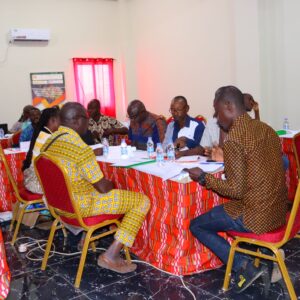
Pour pallier ces insuffisances, les participants proposent des actions concrètes à savoir :
– Faire un état des lieux de la filière café-cacao, des GVC à l’Ohada après plus de 10 ans d’application de l’acte uniforme.
– Mettre en place des comités au sein de la communauté pour défendre les intérêts des coopérateurs
– augmenter le seuil de membres nécessaires pour créer une société Coopérative (ex : 500 membres pour créer une société coopérative avec Conseil d’administration). Une fois ceci mis en place
– chaque membre de coopérative doit avoir une plantation géolocalisée.
– Elaborer une checklist des éléments indispensables pour créer une société Coopérative (nombre de membre, étude de faisabilité, géolocalisation, demander des documents comme l’ARF, etc.)
– Elaborer un modèle de statut à mettre à la disposition des sociétés coopératives membres de la plateforme Et un manuel pour la fiscalité applicable aux sociétés coopératives.
– Il serait important d’élaborer un plan de développement pour les sociétés coopératives (notamment pour faire vivre toute l’année).
– demander un régime fiscal particulier pour les coopératives et mettre en place un système de AVEC pour constituer des fonds propres pour ces organisations.
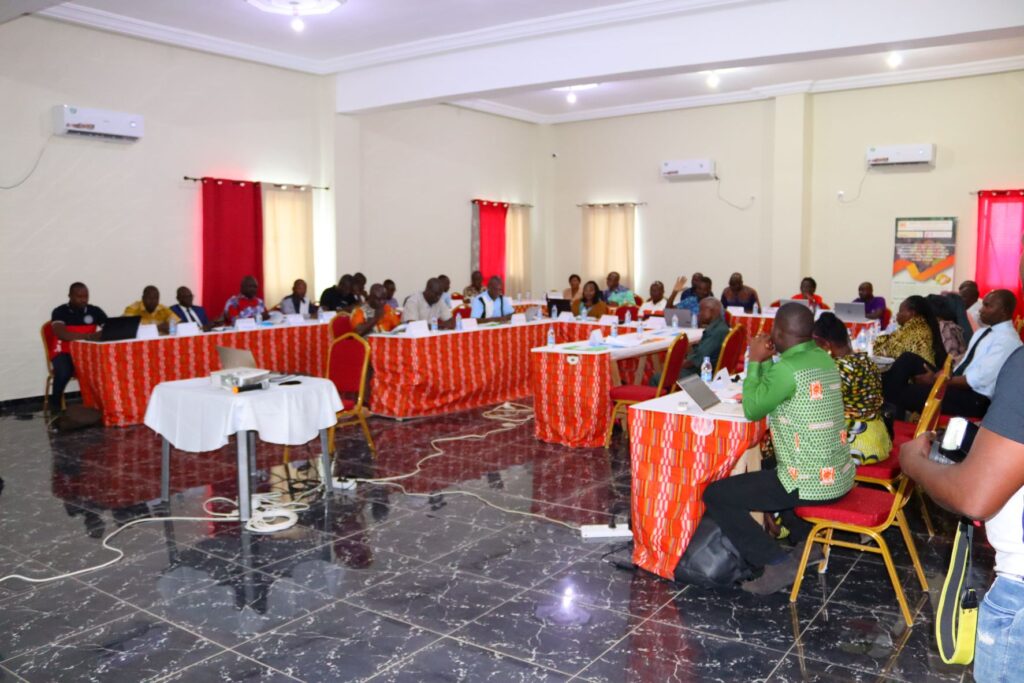
Pour rappel, l’organisation de cet atelier s’inscrit dans la mise en œuvre du projet : « Renforcement des capacités des organisations de la société civile et des organisations de producteurs de cacao engagés dans le dialogue politique en Côte d’Ivoire. », un projet qui est dans sa deuxième phase d’exécution. Cette phase 2, débutée en janvier 2022 court jusqu’en mars 2023. Le projet a plusieurs axes d’actions allant de la bonne gouvernance dans la filière cacao à la production durable.
Alla Hervé, Inades-Formation Côte d’Ivoire


